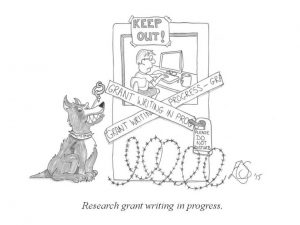 You will have seen my blog post last week, which provided you with a number of pointers for submitting a good quality research bid. In case you didn’t, please read it here. I won’t go over the same information, but do read it if you want to know about the application timeline, BU processes, and what support information is available to you when writing a bid.
You will have seen my blog post last week, which provided you with a number of pointers for submitting a good quality research bid. In case you didn’t, please read it here. I won’t go over the same information, but do read it if you want to know about the application timeline, BU processes, and what support information is available to you when writing a bid.
This week, RDS and academics will provide you with a series of blog posts about what makes a good quality bid, what success looks like, and how the RDS Research Facilitators can support you. To start your week off, I’ve outlined below some of the options available to support you with research bidding.
Let’s start with what’s available to you under the Research and Knowledge Exchange Development Framework (RKEDF). We will shortly be publicising a range of opportunities to progress your research bids at BU. Do keep an eye on OD’s Calendar of Events for upcoming activity. We will also be posting when new opportunities are finalised.
- Research Council Development Scheme – is a coordinated, targeted set of activities designed to inspire and equip BU researchers to achieve greater success with Research Council funding. The third cohort was cancelled due to the pandemic. This will be reintroduced in early 2022 to those on the third cohort. Any vacancies to join the cohort will be advertised.
- Faculty Grant Hubs – led by RDS and academics, this was trialled in FMC in the summer and will be rolled out to the other faculties in due course. The Grant Hubs tend to be four sessions held over a month for academic staff (mainly ECRs), and include advice by experienced academics on how to write a research application, a writing day, peer review sessions, and EAR (see below) support.
- Research Leadership Programme (RLP) – ECR and mid-career cohorts – RLP develops and enhances wider research-related skills through workshops, action learning, and progress reports. The focus is on research leadership, project management, networking and dealing with risk and uncertainty.
- External application reviewers – will be provided to academic staff preparing research proposals to prestigious funders and those identified to work on major and strategic bids. ECRs, NERC standard grants, attendees of the Faculty ‘Grant Hubs’ and other bid writing sessions, and cohort members of the RCDS, will also be given priority to work with an EAR.
In addition to the above, we will run ad hoc bid writing sessions for certain calls. STEAMLabs will be held for each SIA and Global Engagement, to form collaborations and generate bids. We will continue with the weekly funder briefings. There will be a fair bit of training on research methods this year, as well as many more opportunities. Therefore, keep an eye on the blog for what’s new and upcoming.
 What’s available on the blog?
What’s available on the blog?
The Research Funders Toolkit contains a host of information to support you when bidding for research. The Research Funders’ Guide gives an overview of the main funders, including links to their essential documents. Do explore these two resources for the latest information. Not sure where to start? Our Research Lifecycle guides you through all aspects of research and includes useful links to essential information to help you in your research career. Finally, it also helps you identify your RDS support and faculty contacts. Meet the RDS team here.
I hope that’s given you a ‘starter for ten’ in terms of developing your research at BU and contributing to the research aims within BU2025. On Friday, there will be a post about RDS Research Facilitators and what they can do to support you. Do remember that you also have a Faculty Research Mentor to help guide you through the world of academic research.
Good luck and once you have been awarded your grant, our skilled Project Delivery team are there the rest of the way to help you manage your funding. More from them in the next few weeks.


















 Beyond Academia: Exploring Career Options for Early Career Researchers – Online Workshop
Beyond Academia: Exploring Career Options for Early Career Researchers – Online Workshop UKCGE Recognised Research Supervision Programme: Deadline Approaching
UKCGE Recognised Research Supervision Programme: Deadline Approaching SPROUT: From Sustainable Research to Sustainable Research Lives
SPROUT: From Sustainable Research to Sustainable Research Lives BRIAN upgrade and new look
BRIAN upgrade and new look Seeing the fruits of your labour in Bangladesh
Seeing the fruits of your labour in Bangladesh ECR Funding Open Call: Research Culture & Community Grant – Apply now
ECR Funding Open Call: Research Culture & Community Grant – Apply now ECR Funding Open Call: Research Culture & Community Grant – Application Deadline Friday 12 December
ECR Funding Open Call: Research Culture & Community Grant – Application Deadline Friday 12 December MSCA Postdoctoral Fellowships 2025 Call
MSCA Postdoctoral Fellowships 2025 Call ERC Advanced Grant 2025 Webinar
ERC Advanced Grant 2025 Webinar Update on UKRO services
Update on UKRO services European research project exploring use of ‘virtual twins’ to better manage metabolic associated fatty liver disease
European research project exploring use of ‘virtual twins’ to better manage metabolic associated fatty liver disease